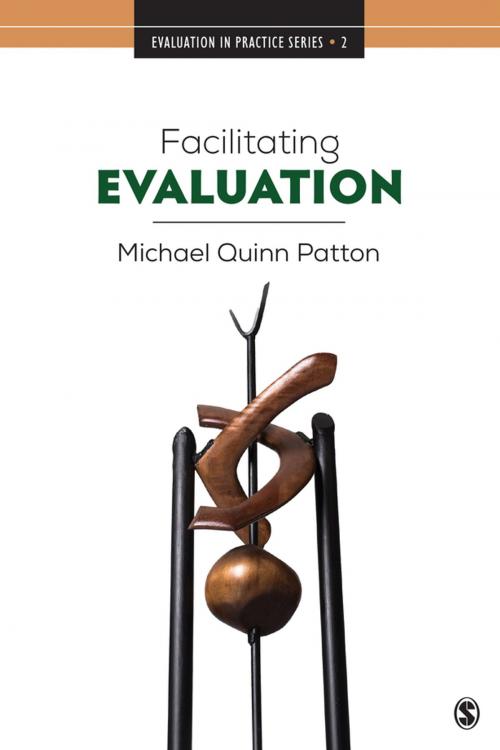Facilitating Evaluation
Principles in Practice
Nonfiction, Social & Cultural Studies, Social Science, Methodology, Reference & Language, Reference, Research| Author: | Dr. Michael Quinn Patton | ISBN: | 9781506347639 |
| Publisher: | SAGE Publications | Publication: | October 23, 2017 |
| Imprint: | SAGE Publications, Inc | Language: | English |
| Author: | Dr. Michael Quinn Patton |
| ISBN: | 9781506347639 |
| Publisher: | SAGE Publications |
| Publication: | October 23, 2017 |
| Imprint: | SAGE Publications, Inc |
| Language: | English |
In Facilitating Evaluation, Michael Quinn Patton recounts stories of his experiences as an evaluation facilitator. Evaluation facilitation applies and adapts general facilitation knowledge and techniques to the specialized challenges of working with stakeholder groups involved in program evaluation.The purpose of such facilitation is to enhance the relevance, credibility, meaningfulness, and utility of evaluations. Michael Quinn Patton outlines five evaluation facilitation principles that are the organizing framework for addressing how to work with stakeholders to generate evaluation questions, make decisions among methods, interpret findings, and participate in any and all aspects of evaluation, from initial determination of purpose through design and data collection, and on through follow-up to ensure and enhance use. His between-chapter portages are an opportunity to hear different voices and encounter diverse perspectives on evaluation facilitation. In each case, he invited colleagues to write about anything they thought was important to understand and yet neglected in the evaluation literature. The book will be required reading for advanced courses in program evaluation and become an indispensable resource for practitioners in the field.
In Facilitating Evaluation, Michael Quinn Patton recounts stories of his experiences as an evaluation facilitator. Evaluation facilitation applies and adapts general facilitation knowledge and techniques to the specialized challenges of working with stakeholder groups involved in program evaluation.The purpose of such facilitation is to enhance the relevance, credibility, meaningfulness, and utility of evaluations. Michael Quinn Patton outlines five evaluation facilitation principles that are the organizing framework for addressing how to work with stakeholders to generate evaluation questions, make decisions among methods, interpret findings, and participate in any and all aspects of evaluation, from initial determination of purpose through design and data collection, and on through follow-up to ensure and enhance use. His between-chapter portages are an opportunity to hear different voices and encounter diverse perspectives on evaluation facilitation. In each case, he invited colleagues to write about anything they thought was important to understand and yet neglected in the evaluation literature. The book will be required reading for advanced courses in program evaluation and become an indispensable resource for practitioners in the field.















